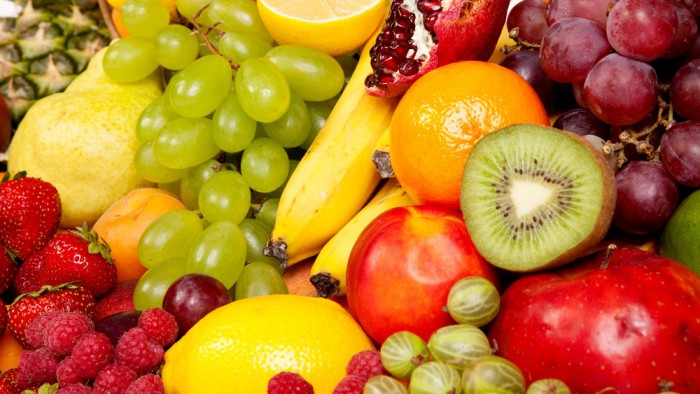Eating fruit not only provides you with nutrients needed for health, the repairing of your body and a reduced risk of some chronic diseases, but fruits can also benefit your running. – By Esmé Maré (Registered Dietitian) at Christine Peters & Associates
Athletes have higher rates of energy metabolism and higher muscular and skeletal stresses than non-athletes, and therefore have a higher need for vitamins and minerals. And one of the best sources is fruits. These vitamins and minerals are essential for metabolising energy substrates, assisting in tissue building, for maintaining the fluid balance in the intercellular and extracellular environments, for carrying oxygen and other elements needed for metabolic work, and for removal of metabolic by-products from working tissues. The vitamins and minerals found in fruits also play a role in reducing the exercise-induced oxidative stress experienced by athletes.
Best Fruit Forward
Although all fruits are healthy, there are particular fruits which may provide exceptional benefits to athletes:
1 Bananas: A great source of carbohydrates, which makes them a powerhouse of fuel for your body and muscles. Choose ripe bananas, which naturally have a higher sugar content. Bananas are also great sources of potassium and manganese, which help to replenish electrolytes lost during physical exertion, help to prevent muscle cramps, help wound healing, increase bone strength and endurance, and may help to maintain a healthy blood pressure by maintaining the water balance in your body. Bananas are also an excellent source of vitamin B6, which provides anti-inflammatory benefits and may help to prevent cardiovascular disease.
2 Cherries: One of the most antioxidant-rich fruits and provides athletes with plenty of health, performance and recovery benefits. Cherries may help to calm your nervous system, which is great if you have pre-race jitters, while the natural anti-inflammatory properties offer post-exercise relief to sore muscles, may lower the risk of heart disease, and may ease the pain of arthritis and gout.
3 Blueberries: Rich in antioxidants and omega 3 fatty acids, which provide your body with several ant-inflammatory benefits and protect your heart. Blueberries are a great source of fibre, vitamin K and vitamin C, and can boost cognitive function.
4 Tomatoes: High in vitamin C, potassium, fibre and the best source of lycopene, a potent anti-oxidant that may reduce cholesterol levels and reduce the risk of macular degeneration and certain cancers. An excellent source of vitamins and minerals for maintaining overall health, specifically a healthy heart, and can be enjoyed as a healthy post-workout snack. Also high in vitamin E, reducing free-radicals, and may improve stamina during exercise.
5 Citrus: Great sources of fibre, calcium, potassium, folate and vitamin B, oranges also contain a big, healthy dose of vitamin C. It helps to maintain great skin and vision and to keep the body’s immune system functioning by supporting white blood cell production. Oranges also contain hesperidin, a phytochemical that may lower triglyceride and blood cholesterol levels.
6 Kiwi: Contains vitamin C, magnesium, potassium, fibre and antioxidants, which help to relieve muscle soreness and increase bone mass. Magnesium and potassium are important for energy production, muscle contraction and relaxation, muscle strength and healthy nerve function.
7 Apples: May help your body to develop resistance against infections, which could be beneficial when you are training hard, or in extreme conditions, and are more prone to infections.
Fruity Tips
• Keep a bowl of fruit visible on a table or counter as a reminder.
• Cut up fruit and refrigerate at eye-level for easy reach.
• Buy fruits in season when they are at their best flavour (and cheaper).
• Buy fruits that are dried, frozen and canned (in 100% natural juice) as well as fresh, so that you always have a supply on hand.
• Add fruits to green salads, for example grapes or orange segments.
• Incorporate fruits in desserts, such as a fruit salad or baked apples.
• Add fruit to meat dishes, e.g. apricots and roast chicken, raisins and mince meat, or pineapple on meat kebabs.
• Add fruit to your breakfast, such as a topping on cereal or pancakes, or with plain low-fat yoghurt.
Aim for two to three portions of fruit per day, such as:
• 1 medium fruit: Apple, banana, orange or pear
• 2 small fruits: Apricots, kiwi’s or plums
• 1 cup diced or canned fruit
• ½ cup fruit juice
• 30g dried fruit


